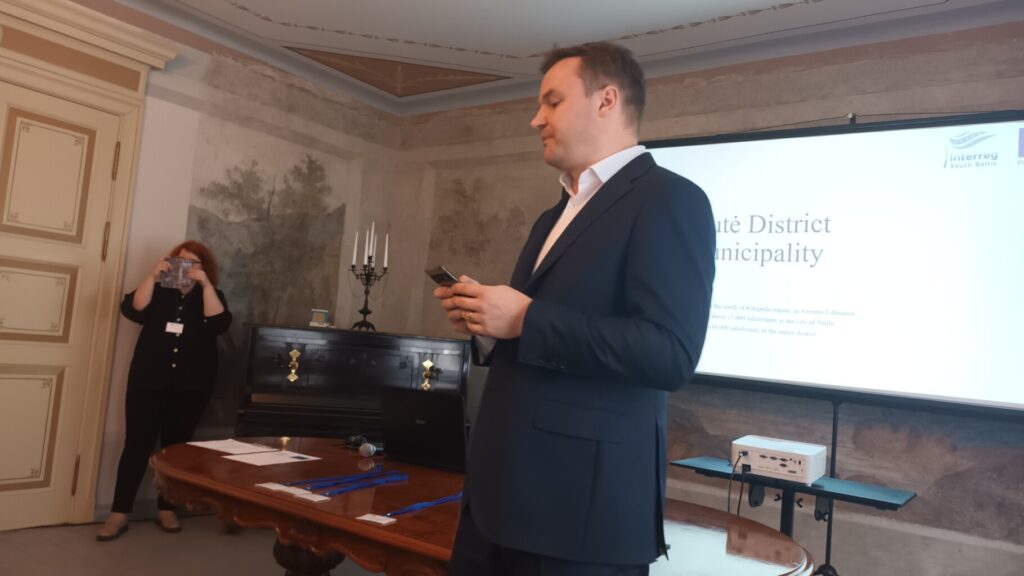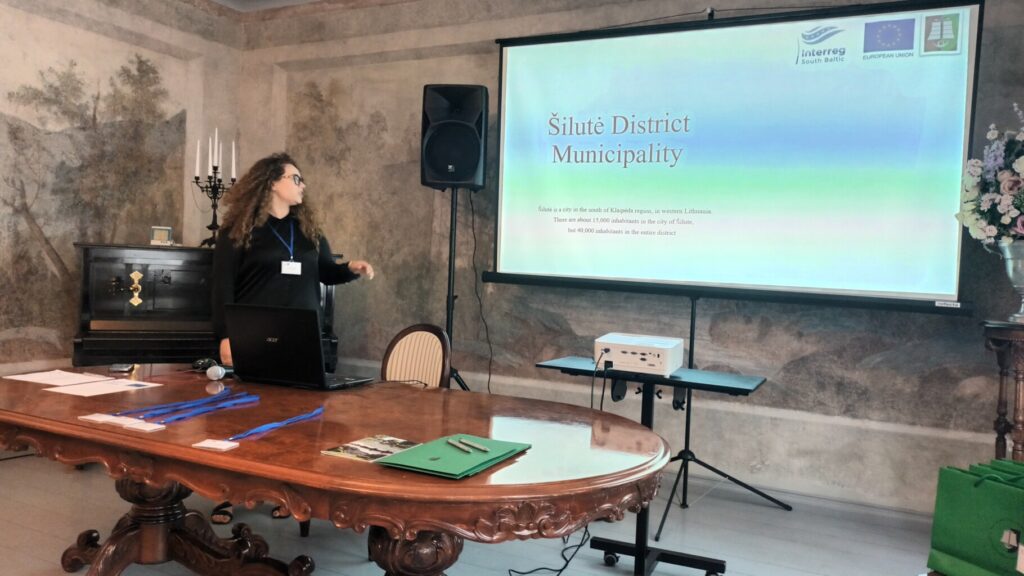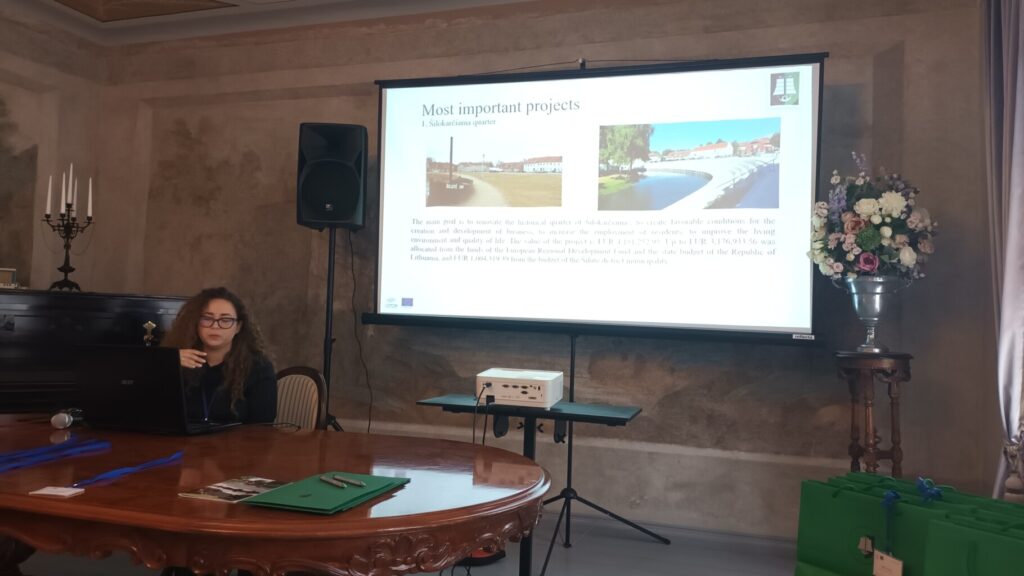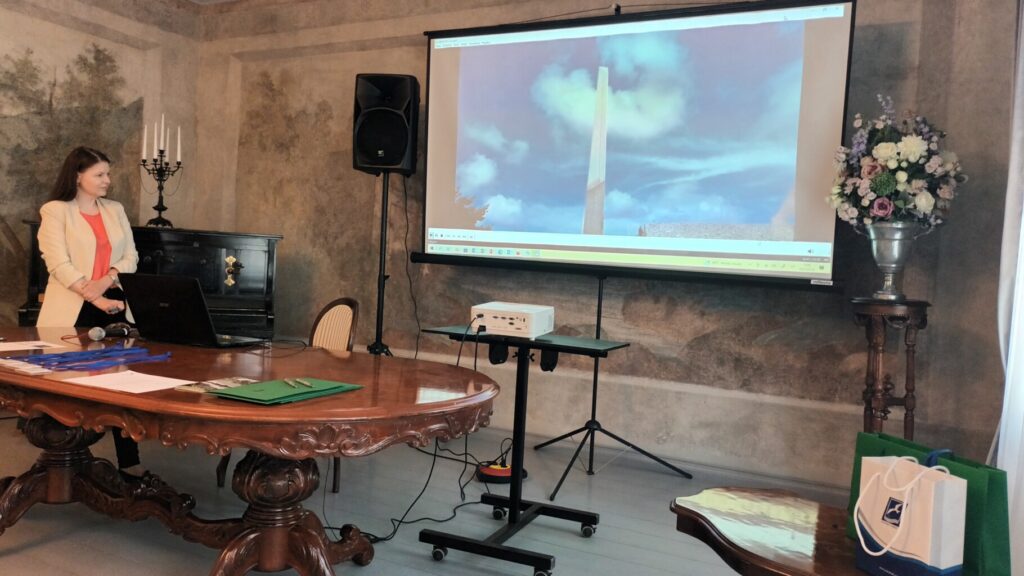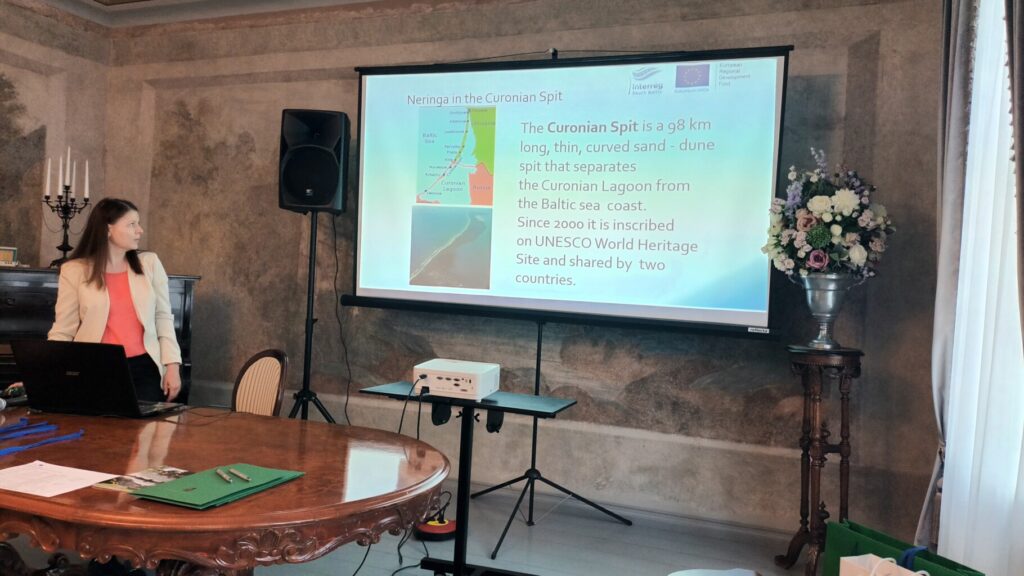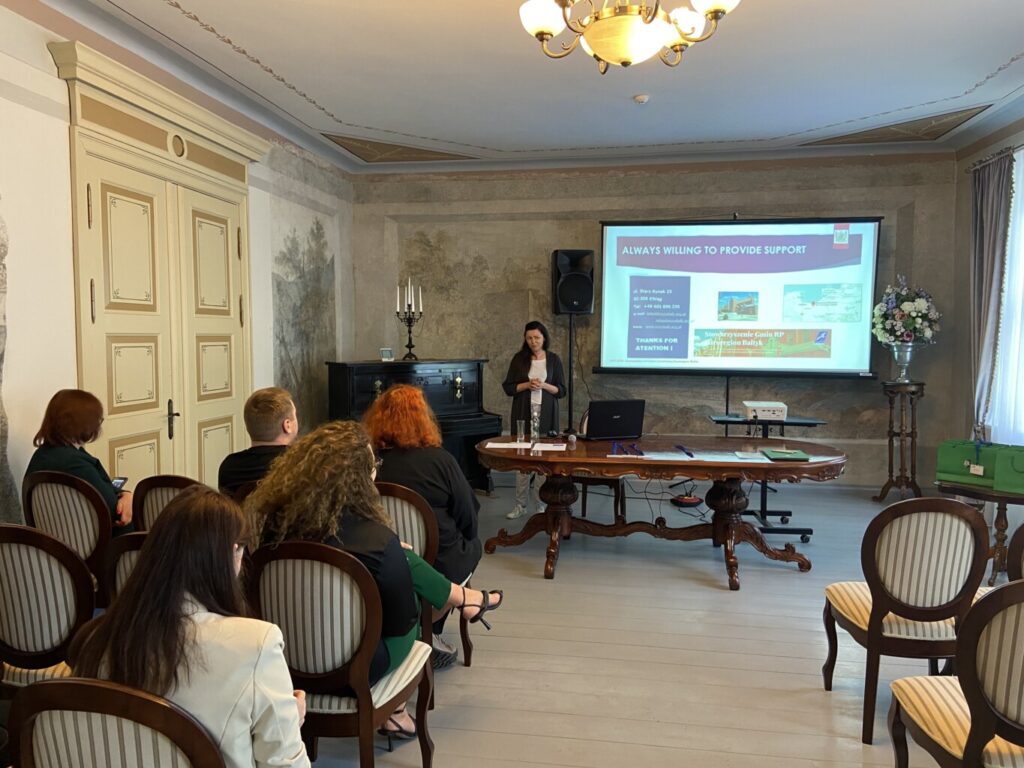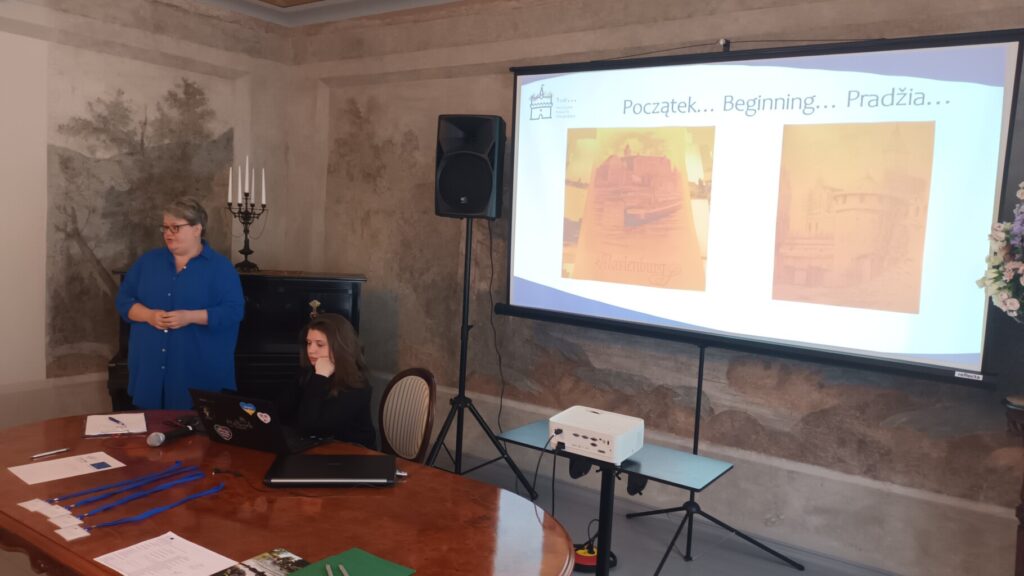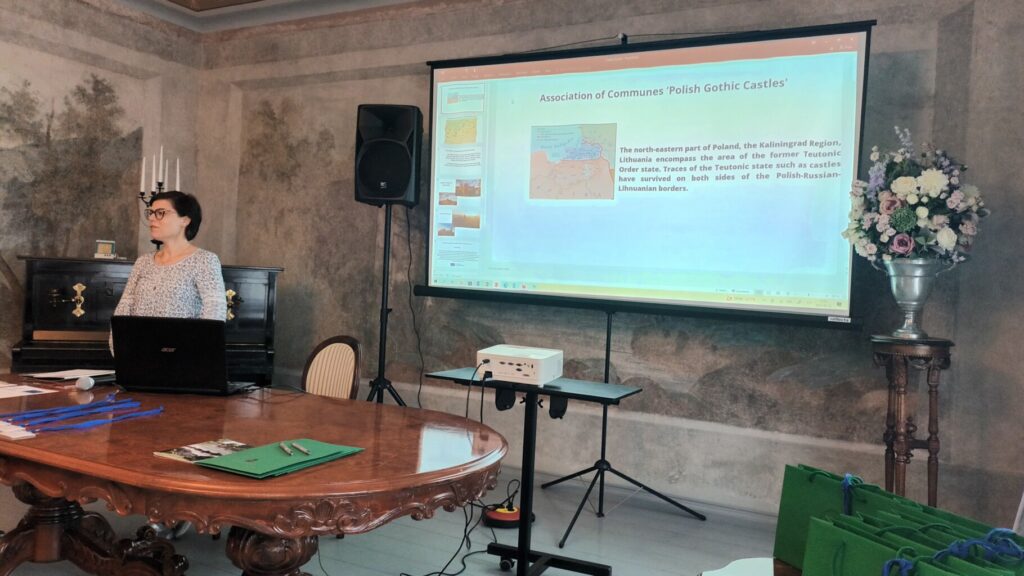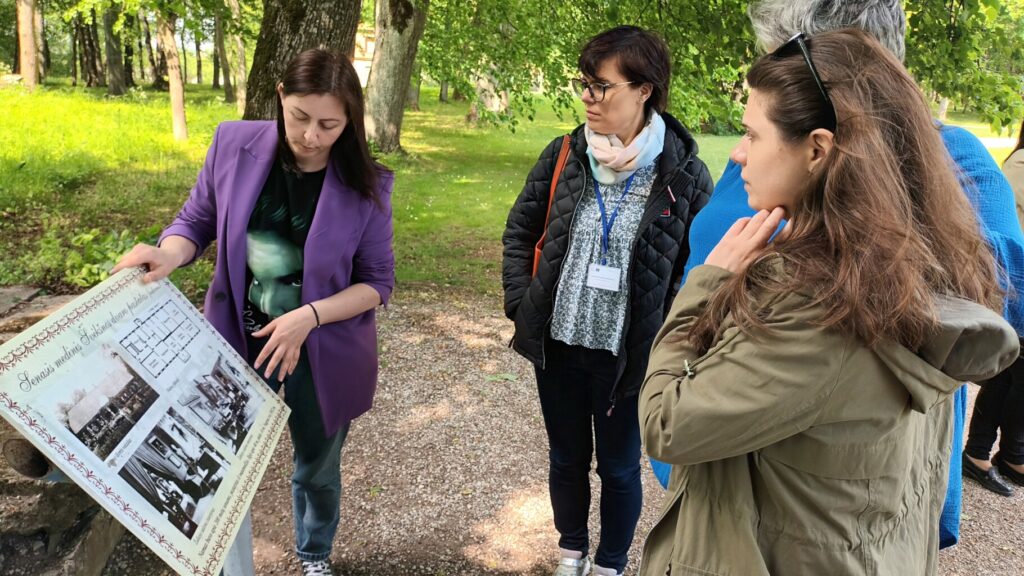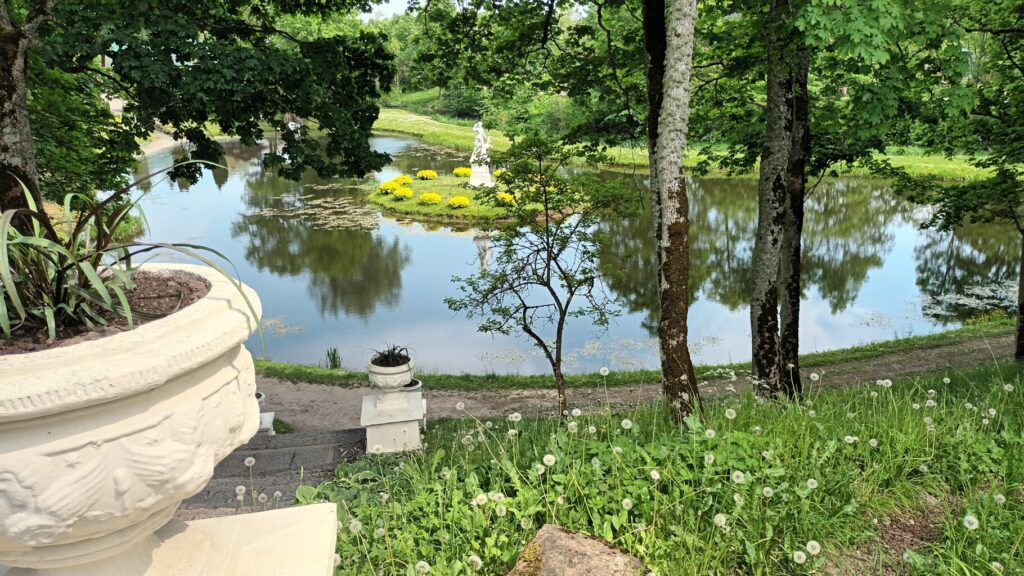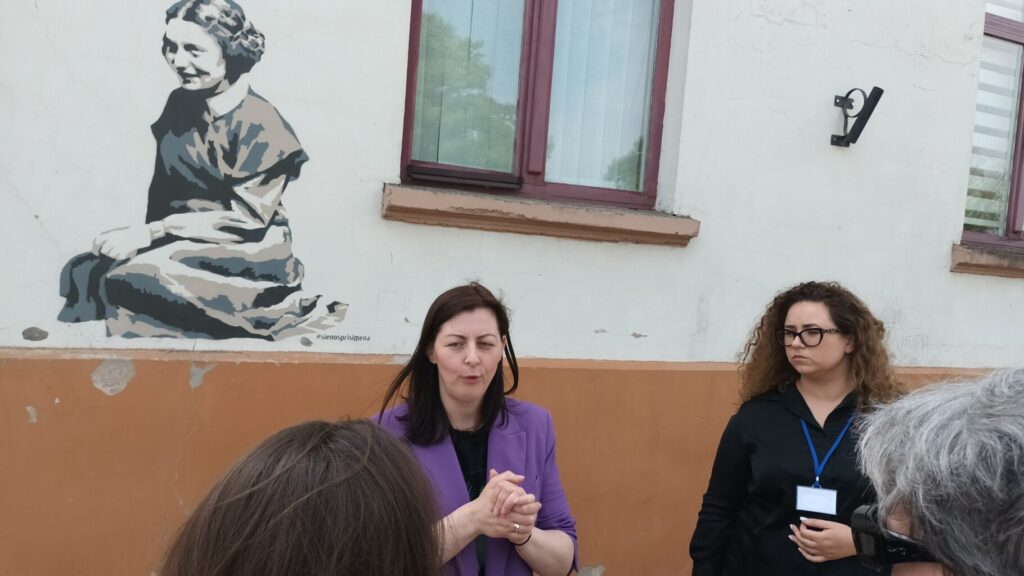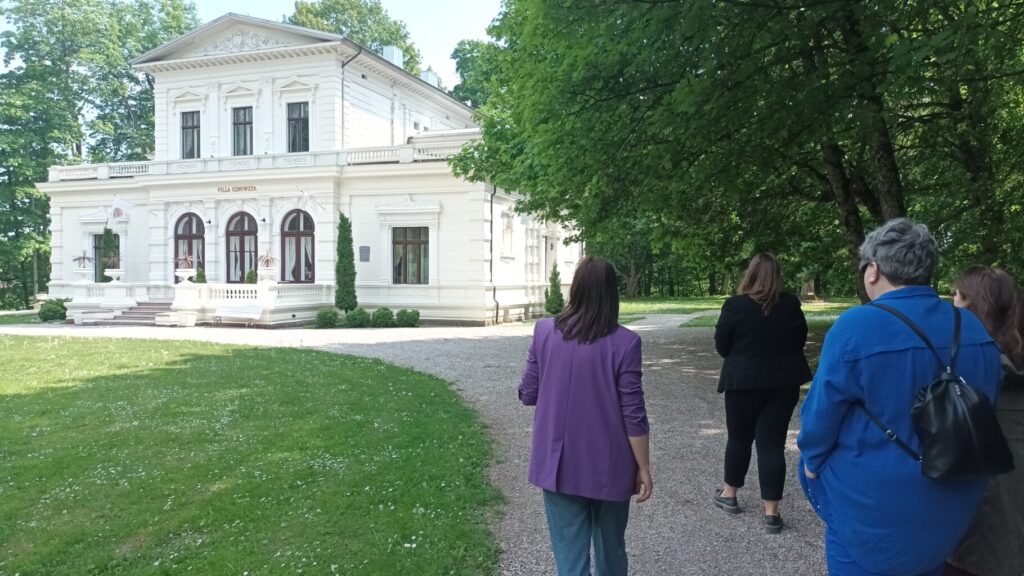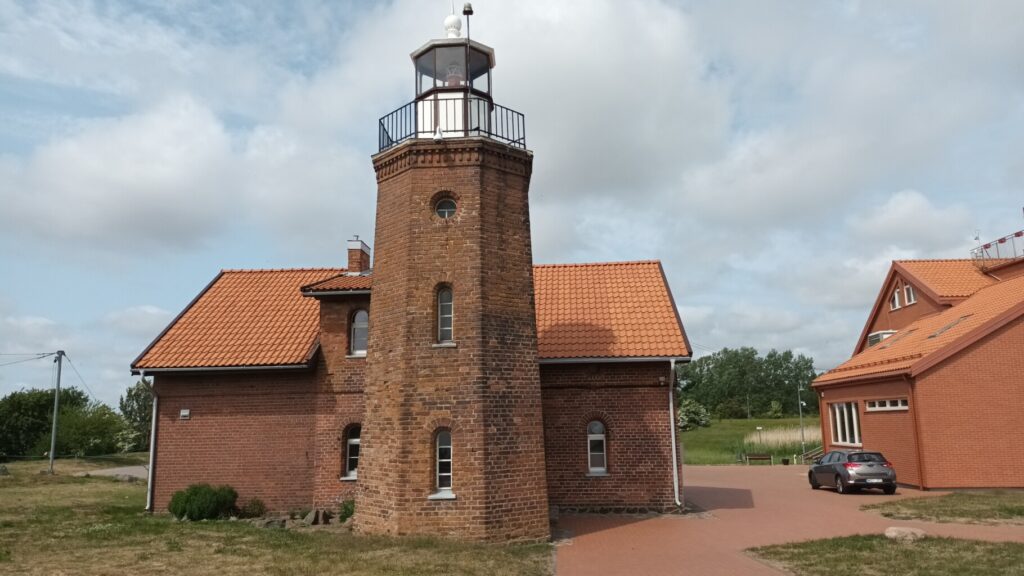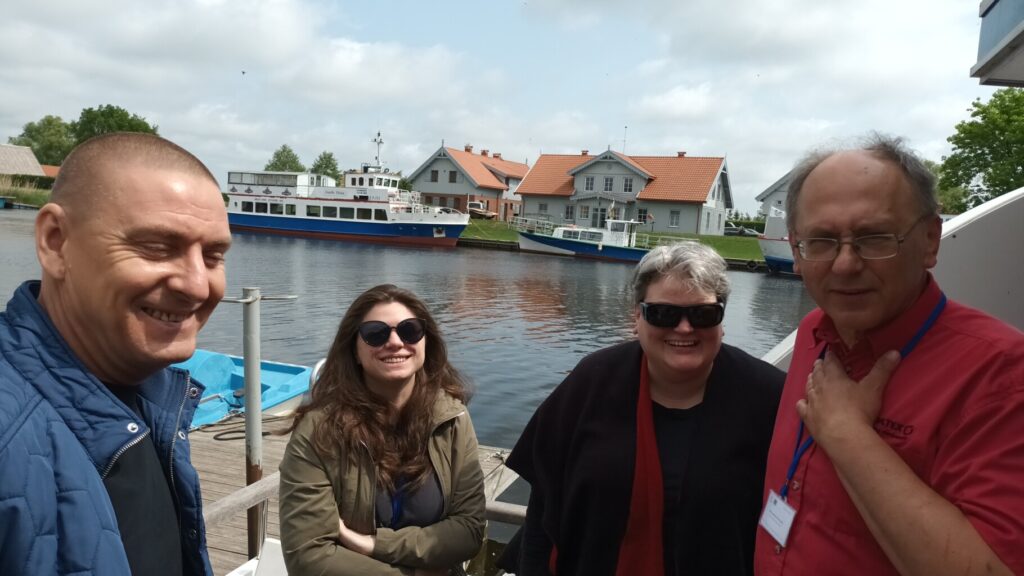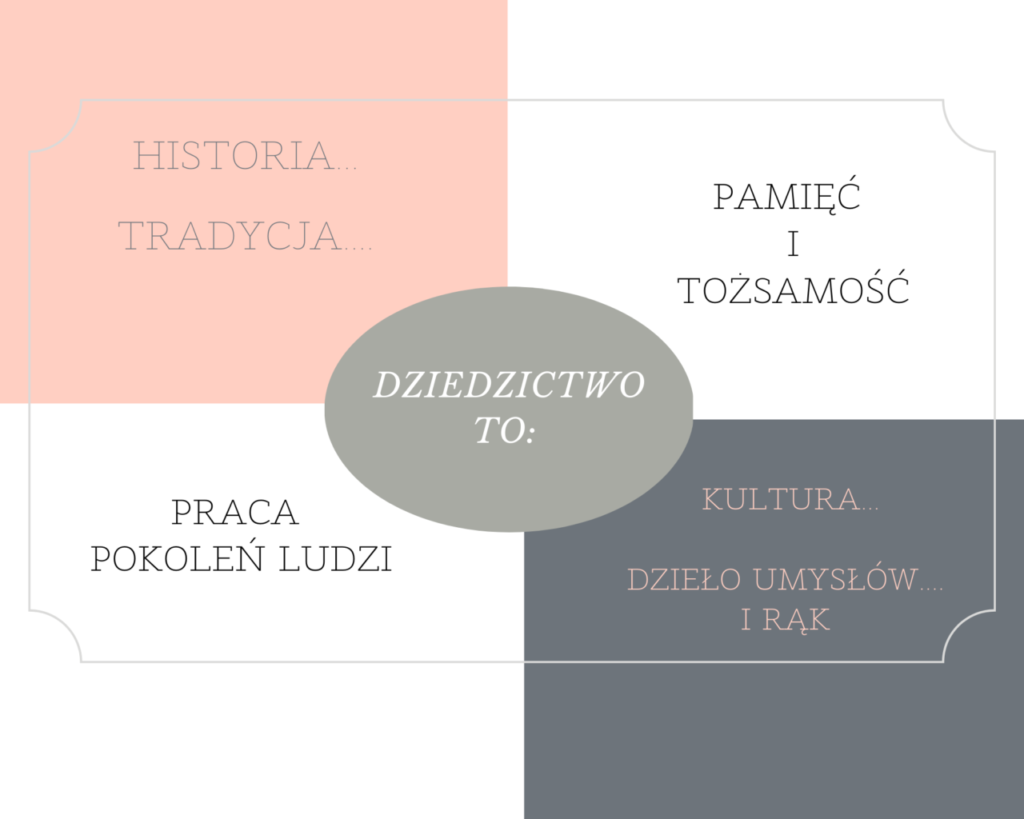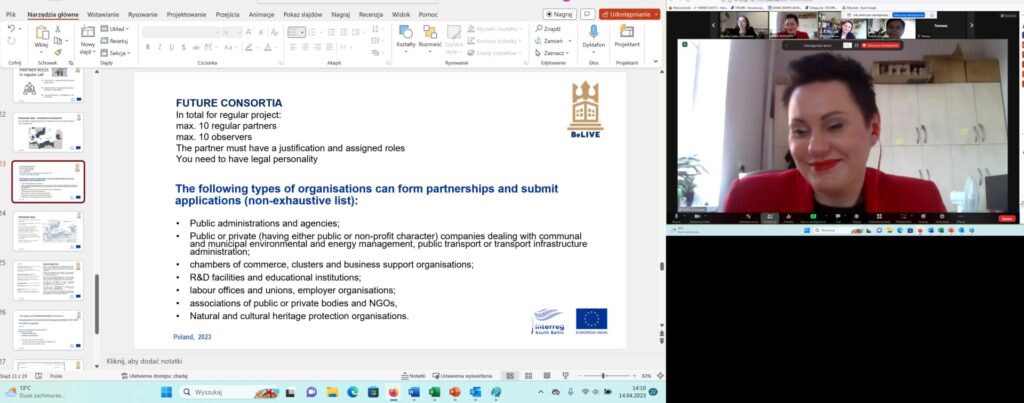Polish-Lithuanian activities of the BeLIVE project in Elblag and Malbork, 13-14.06.2023
We have completed the activities of the seed money project with partners from Lithuania and Poland, which took place on June 13-14, in physical form, in Elblag and Malbork. Behind us were 2 intensive days of workshops combined with a study visits.
The second, and final workshop meeting of the BeLIVE project was held on the first day at the headquarters of our Association. The workshop was devoted to work on the concept paper and future partnerships.
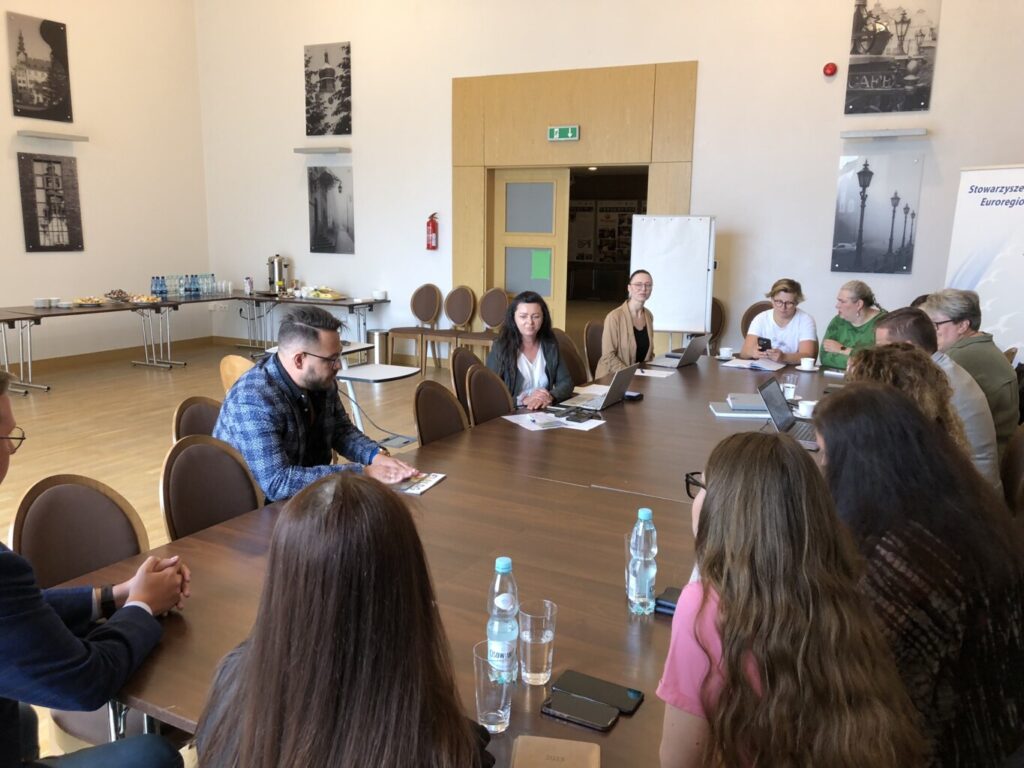
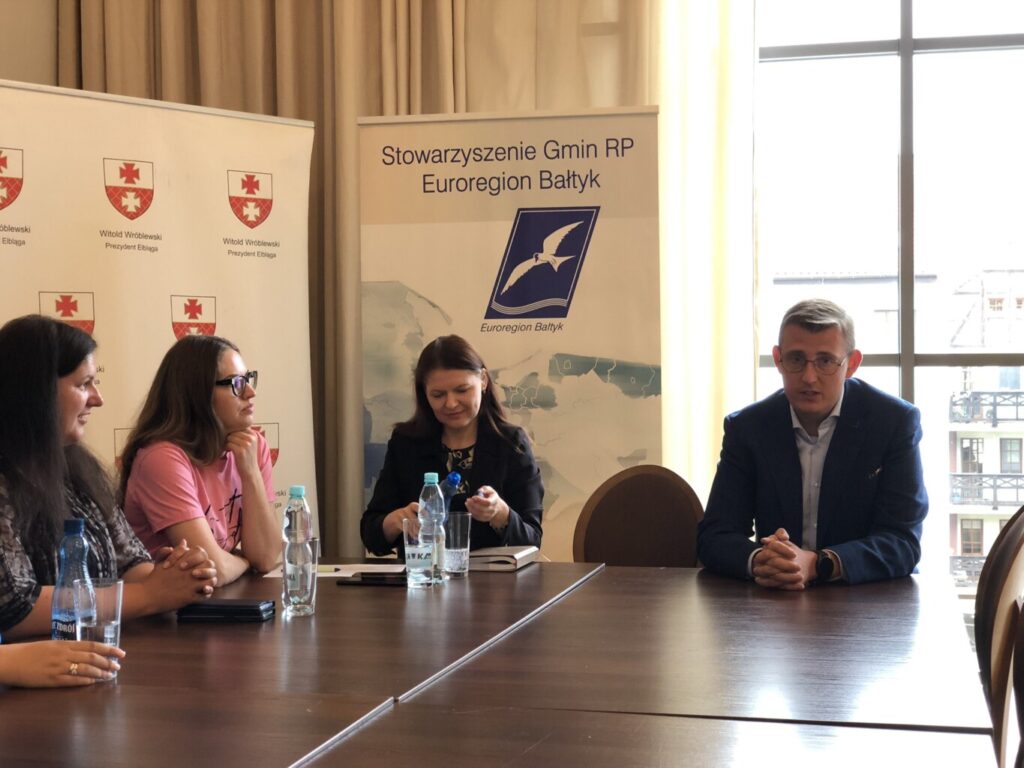
The meeting was attended by representatives from the town of Neringa from the Department of Strategic Planning, Investment and Tourism, the Administration of Silute district Municipality from the departments of city development and international cooperation and European projects, the Association of Municipalities "Polish Gothic Castles," the Museum of the City of Malbork, the municipality of Gietrzwałd and our Association.
Partners from Poland and Lithuania had the opportunity to meet for the second time live. The first visit took place less than three weeks ago in Silute, Lithuania. At that time, the meeting was hosted by the Silute District Administration - report.
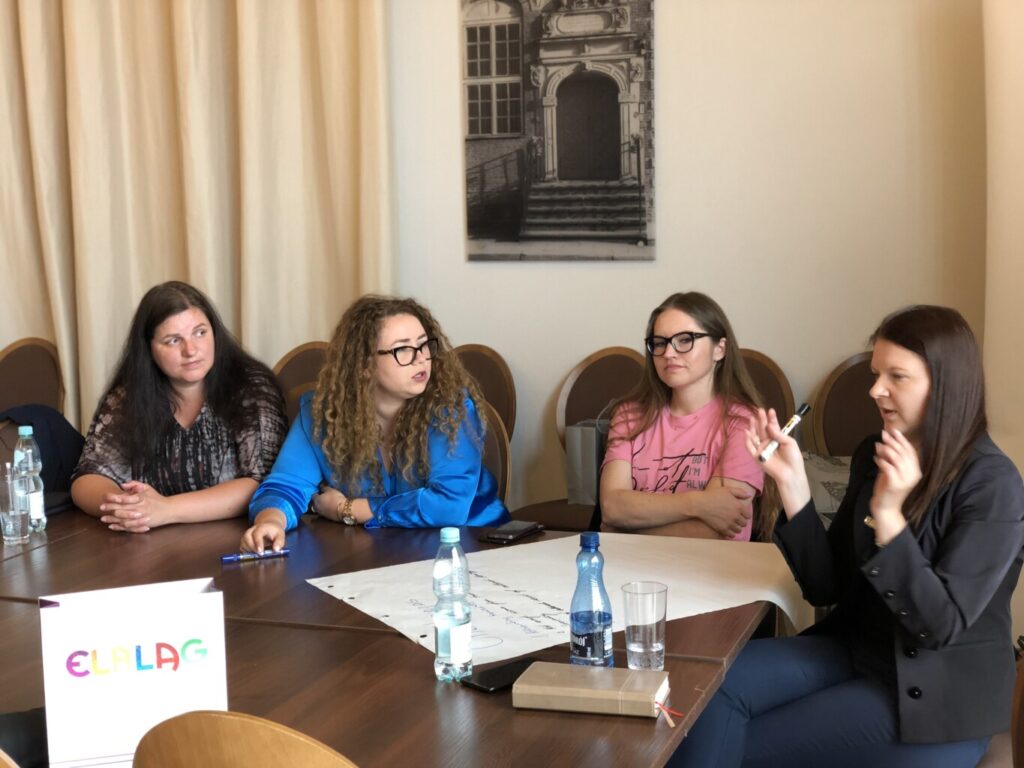
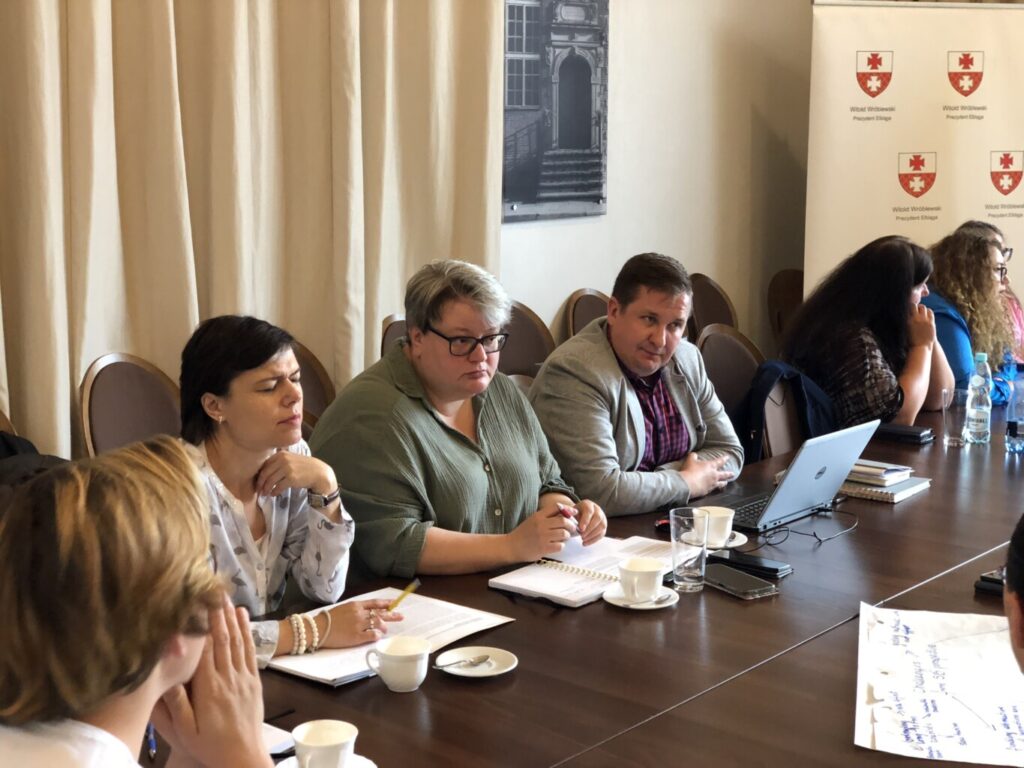
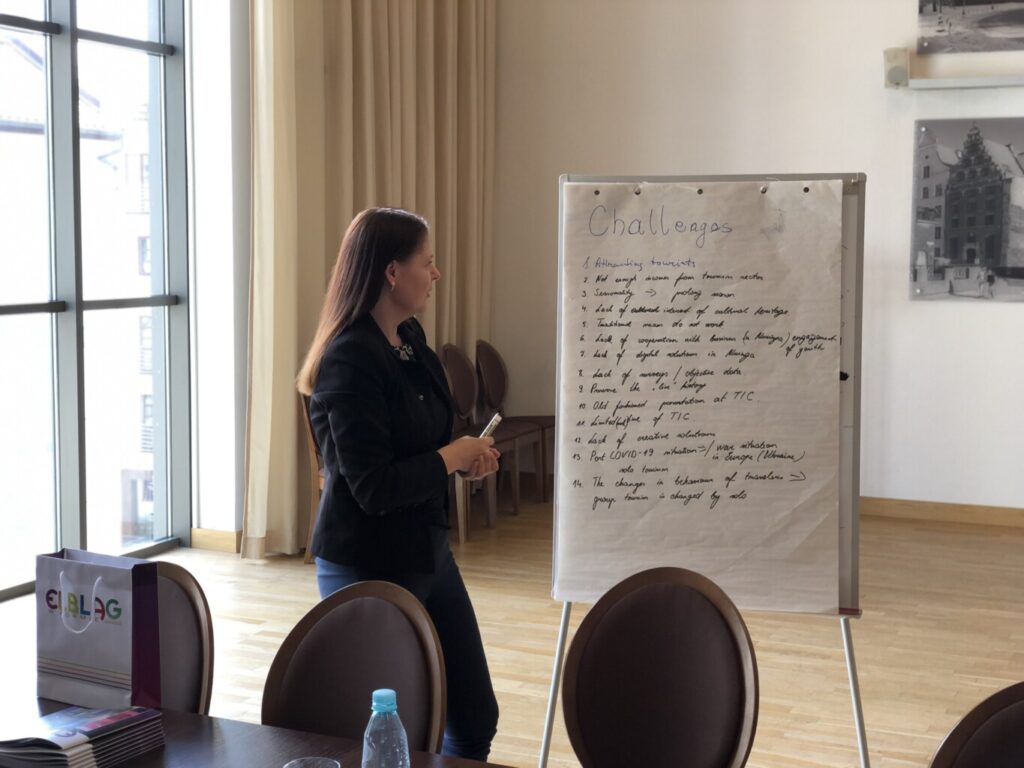
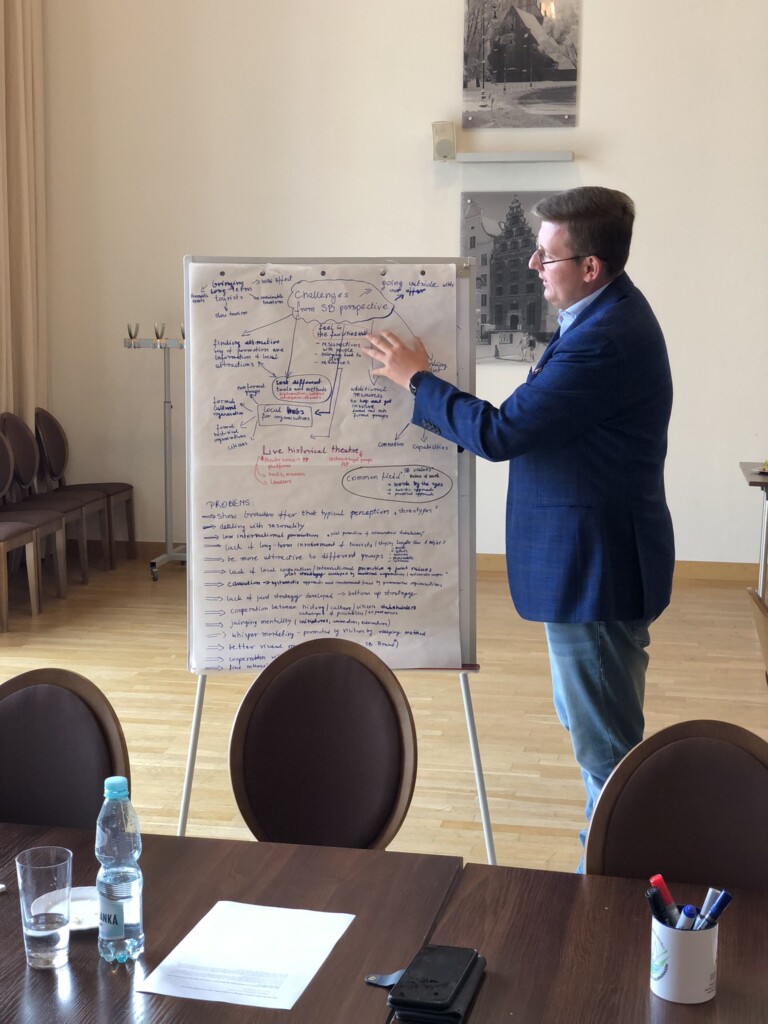
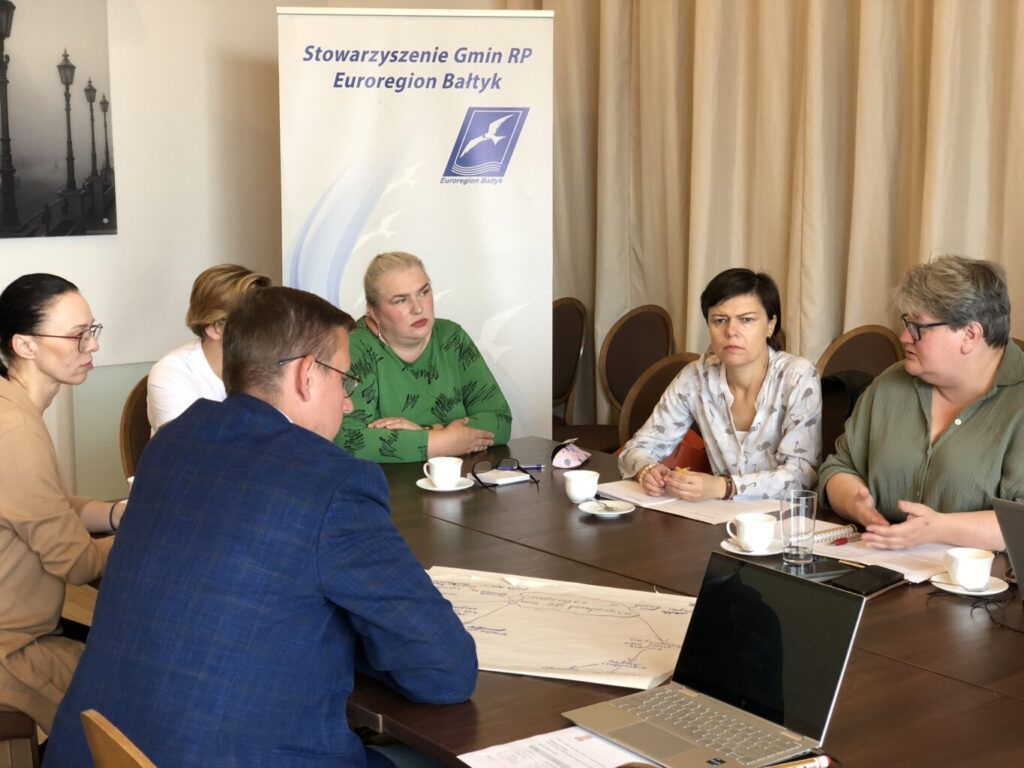
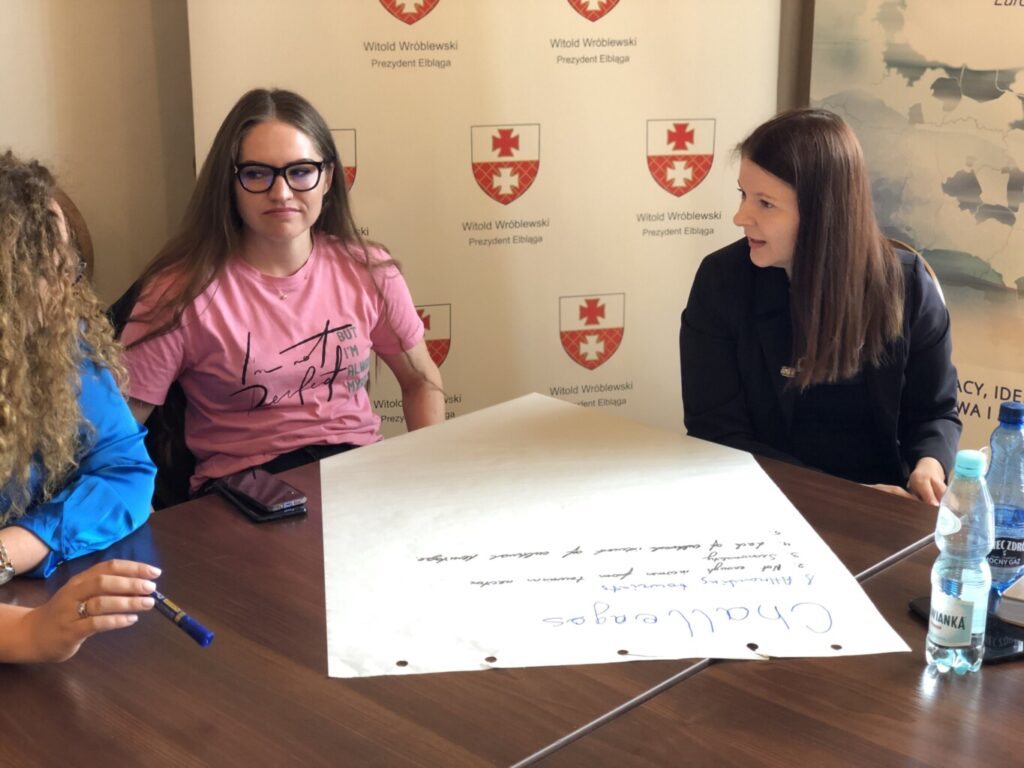
Study visits took place in the second part of the day.
The first place was the Archaeological and Historical Museum, where modern virtual reality solutions were presented. The second venue was the "Światowid" European Meeting Center in Elblag, which has modern digitization equipment. The visits were thematically related to the goal of the project, we wanted the partners to learn about interesting examples related to the theme of virtual reality in order to be able to duplicate them in an improved form and implement them as promotion of tourist attractions built on the theme of cultural heritage.
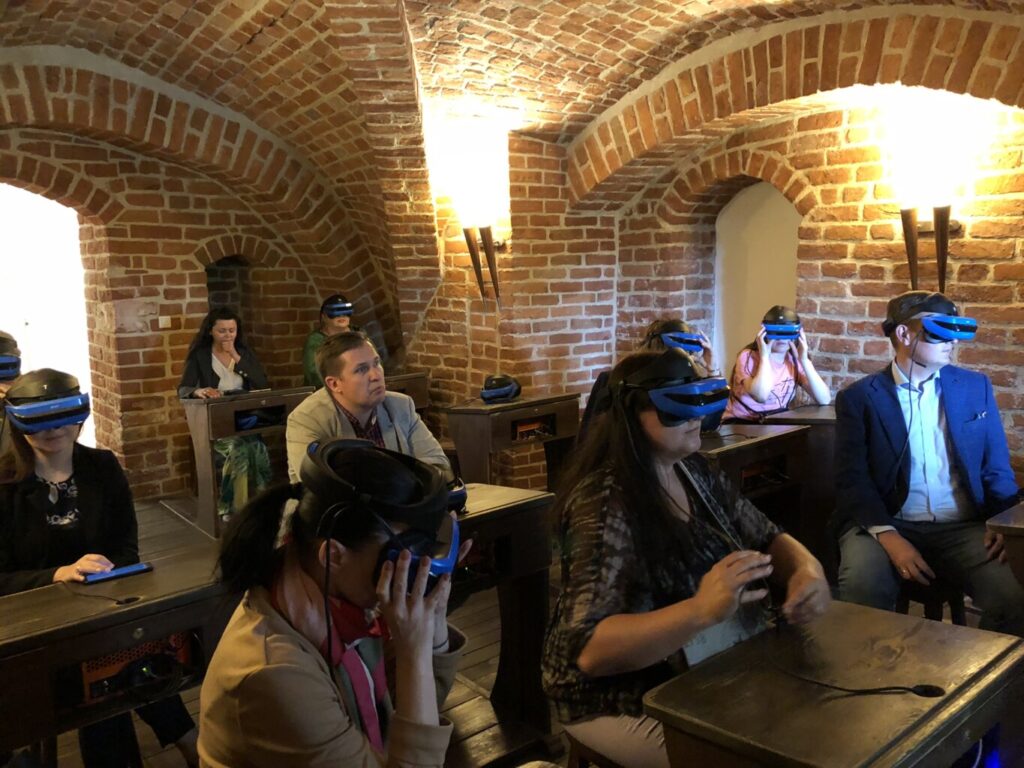
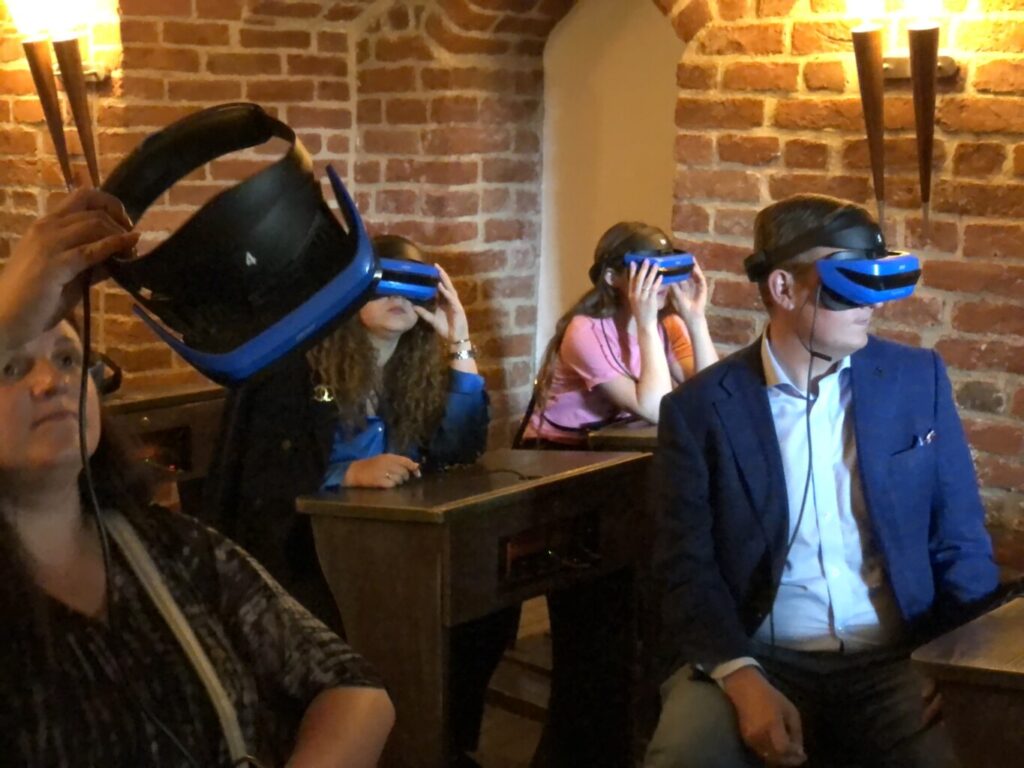
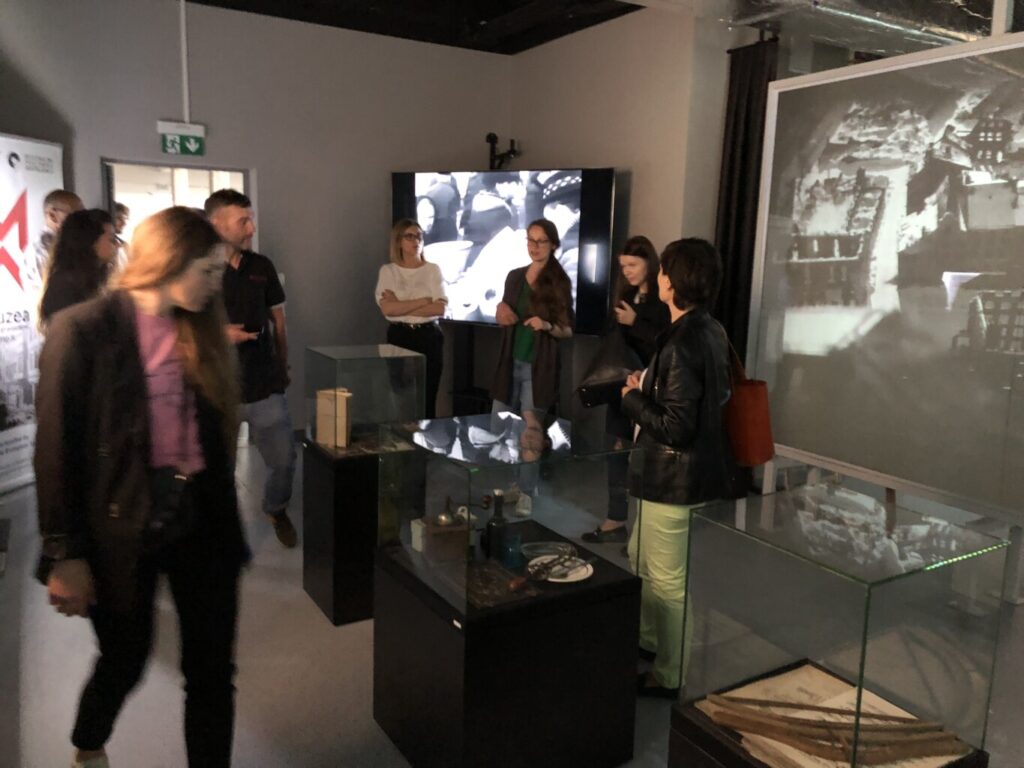
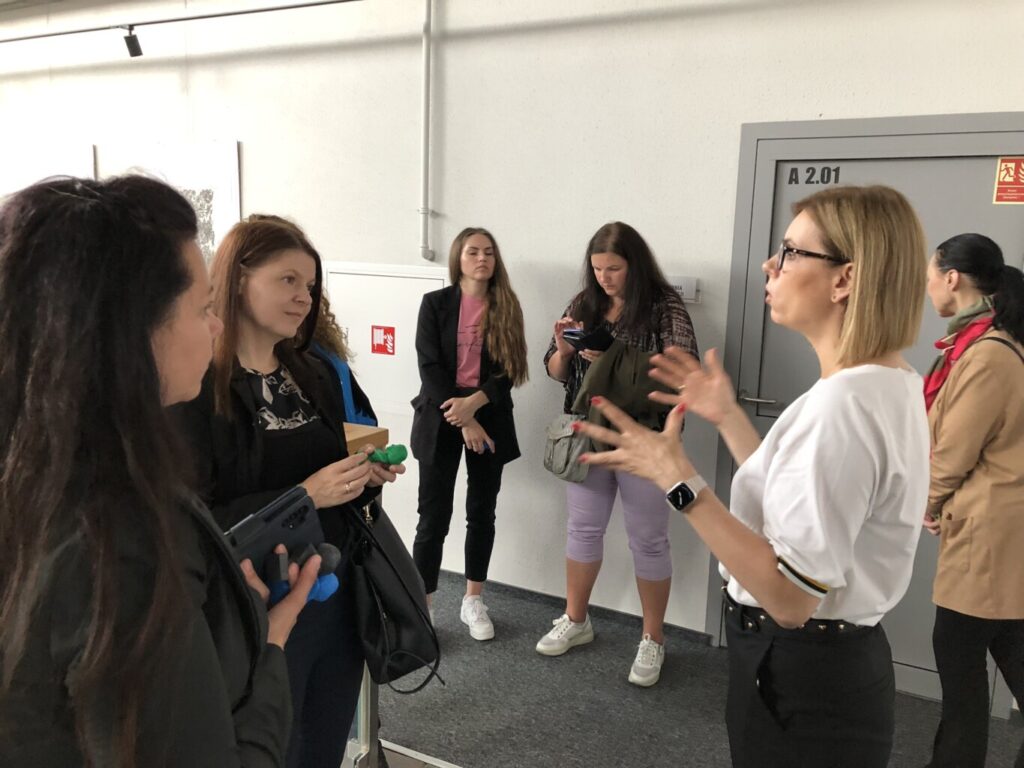
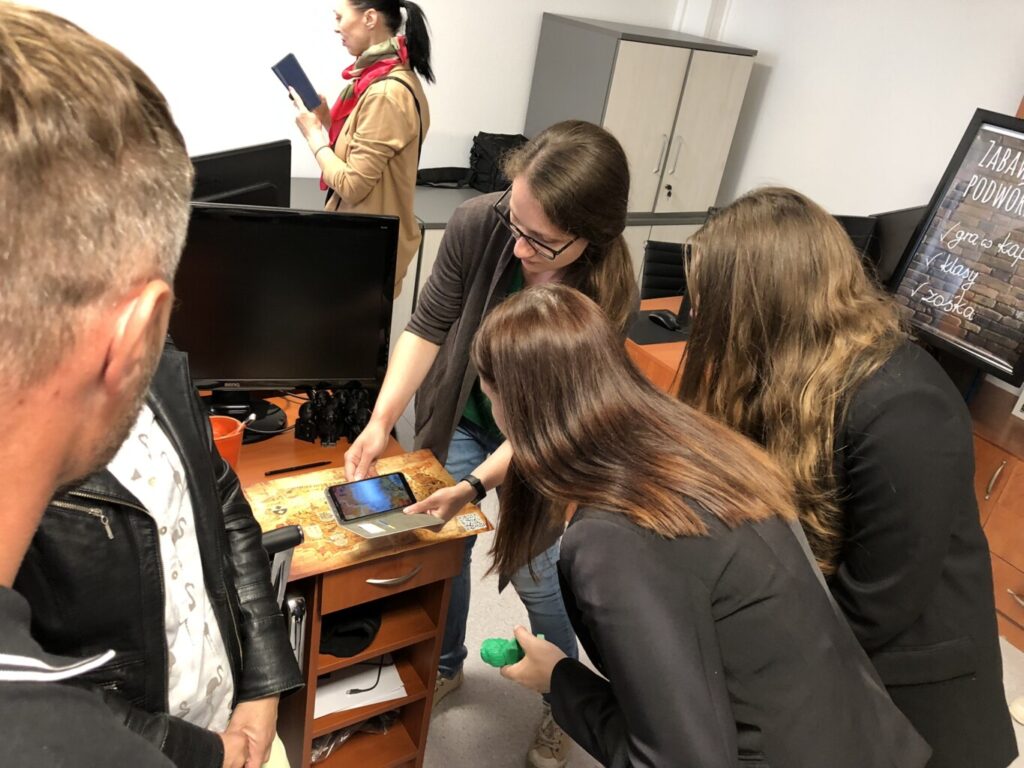
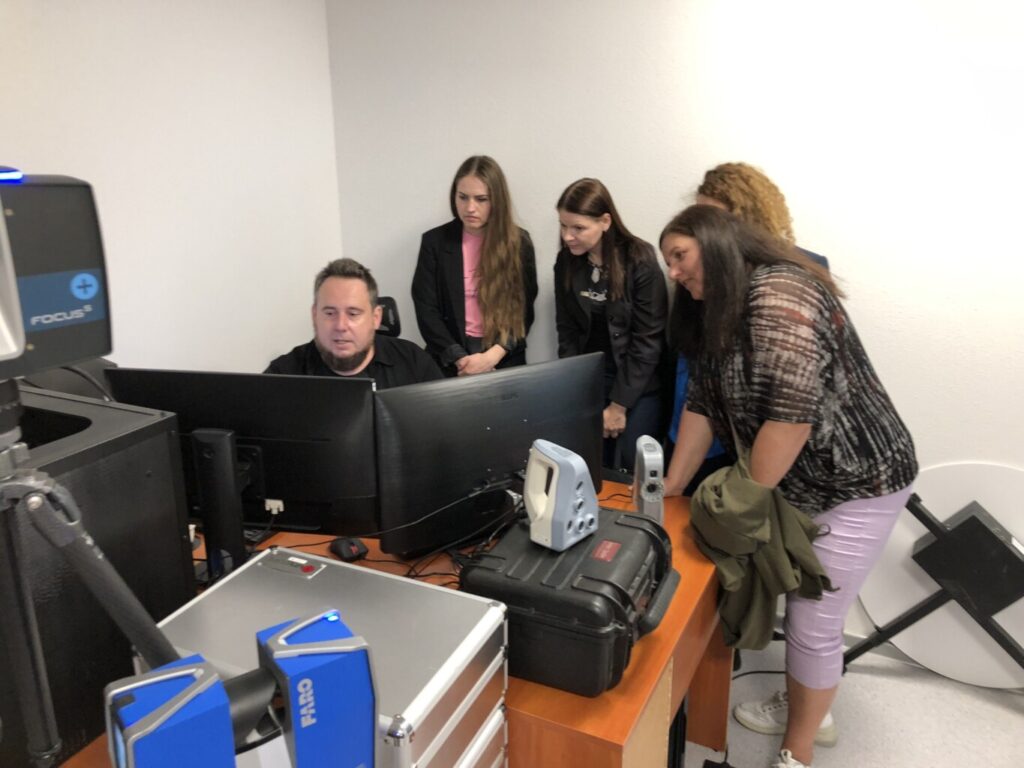
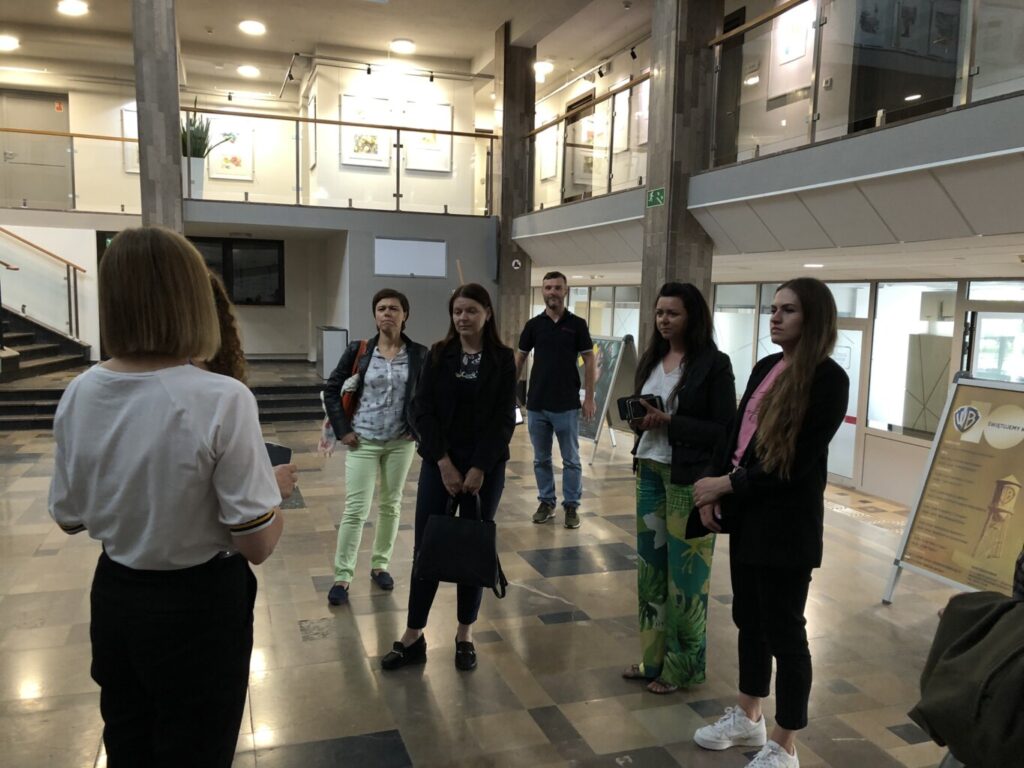
On the second day we were hosted in Malbork. In the first part of the day we visited the exhibitions in the resources of the Malbork City Museum. We had the opportunity to learn about some of the well-known and lesser-known history of Malbork, we learned about the history of the Jews in the Malbork area, we visited a temporary exhibition on loan from the National Museum and an exhibition commemorating the victims of the POW camp.




The second part of the visit was devoted to workshop work. We focused on the discussion regarding the target group, pointed out the need to create a platform of understanding and joint support in promoting each other's goods. We also touched on the budget and future financing of the regular project.
The last item on the agenda was a tour of Malbork's Teutonic Castle. We had the opportunity to listen to historical trivia presented by the guide, while admiring the buildings of the Gothic fortification, the historical rooms and the amber exhibition.




Our work is still in progress. Although the delegation from Lithuania has already returned to their country, we are still working on the best solutions for us to make the BeLIVE project perfect to the smallest detail.
